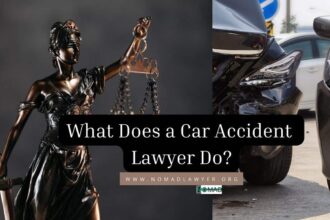Whether you’ve been pulled over for speeding or for failing to stop at a stop sign, you’re bound to have received a traffic ticket in the past. If you’ve been caught in a traffic violation Fight Your Traffic Ticket it will not be a problem, there are some things you can do to avoid a costly fine and possible jail time.
Speeding tickets
Getting a speeding ticket on your driving record can be a headache. In addition to points on your license, you will have to pay fines and surcharges. Your insurance rate may also be affected. In addition, your license may be suspended or revoked.
To help you navigate the process of paying your ticket, you should take notes of the charges. The information included on the ticket includes the date and location of the incident.
The citation may also include information about what to expect at the court hearing. In some cases, a prosecutor will offer a plea bargain. In other cases, you may be required to pay the fine.
You can request a reduction in the fine if you plead guilty. You can also ask for a reduced number of points.
You can pay the fine online. The fines are based on your speed, so if you are over 16 miles per hour, you may face a 36 month increase in your insurance premiums.
Nonmoving violations
Typically, nonmoving violations are less serious than moving violations. But there are certain situations in which nonmoving violations can result in a criminal offense. Depending on the violation, you could face jail time, fines, or other consequences.

There are many reasons why you might receive a nonmoving violation. For example, you might have a broken tail light or failed emissions tests. It’s important to remember that nonmoving violations are not related to how you drove. They are more often than not a violation of vehicle registration.
If you are charged with a nonmoving violation, it is important to understand how it will affect your driving record. While it is generally considered less serious than moving violations, they can still affect your license and insurance rates.
If you receive a nonmoving violation, it will remain on your record for three years. During that time, you can receive administrative penalties, surcharges, or increases in your insurance rates. If you are unable to resolve the violation, you can face expensive fines.
Civil court vs. criminal court
Generally speaking, civil courts are for civil disputes, while criminal courts are for criminal offenses. However, there are some cross-overs between the two. In fact, there are even some countries that have a mix of both.
If you are facing criminal charges, it is important to have a seasoned attorney on your side. Not only can your case be complicated, but it may also result in jail time and a permanent criminal record. Whether you are charged with a traffic violation or a serious crime, speak with an attorney immediately to ensure you get the best possible outcome.
The most important difference between a civil trial and a criminal trial is the burden of proof. In a criminal case, the State has the burden of proving each element of the offense, but in a civil case, the burden of proof is borne by the individual.
In a civil case, the jury decides whether you are guilty of the offense. In a criminal case, the State must prove your guilt beyond a reasonable doubt.
Penalties for failing to stop
Leaving the scene of an accident can be considered a serious offense. This offense can be charged as a misdemeanor or felony. The penalties for leaving the scene of an accident vary depending on the severity of the accident.
If you’ve been charged with failing to stop when driving, it’s important to contact an attorney as soon as possible. This is to protect your rights and avoid a negative outcome.
The penalties for failing to stop when driving may include fines, license suspensions and driver’s examinations. You may also be required to take a safe driving course.
For your first offense, you may face fines of $200 to $400. This may be in addition to a $35 late penalty. If you are charged with a second or third offense within 18 months, you may face fines of $600 to $850. These penalties are often assessed through the state’s Department of Motor Vehicles.
The law in New York requires motorists to stop for school buses. If you fail to stop for a school bus, you could be sentenced to 30 days imprisonment for your first offense and up to 180 days imprisonment for a second offense.



